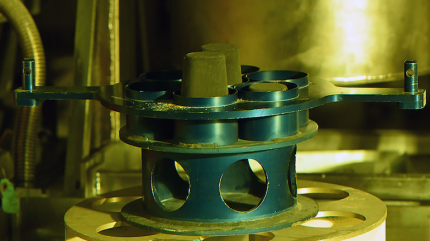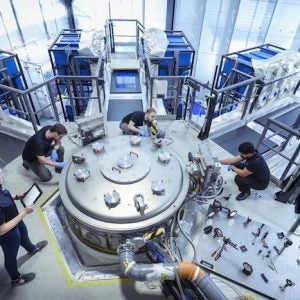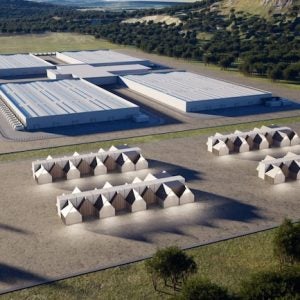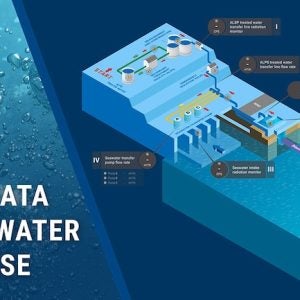
The US Department of Energy (DOE) has made conditional commitments to provide high-assay low-enriched uranium (HALEU) to five US nuclear developers to meet their near-term fuel needs. DOE said this first round of HALEU allocations “brings innovative American nuclear technologies one step closer to commercialisation and will expand the use of nuclear energy to deliver more secure, affordable, and reliable energy to the American people”.
Many advanced reactors will need HALEU to achieve smaller designs, longer operating cycles, and increased efficiencies over current technologies, but HALEU is not currently available from domestic suppliers.
To help fill this gap, DOE created the HALEU allocation process for nuclear developers to request HALEU material from DOE sources, including material from the National Nuclear Security Administration (NNSA). DOE received HALEU requests from 15 companies and identified five that met prioritisation criteria, with three of them requiring fuel delivery in 2025.
The five companies that received conditional commitments are:
- TRISO-X
- Kairos Power
- Radiant Industries
- Westinghouse Electric Company
- TerraPower
TRISO-X, a subsidiary of X Energy is constructing a first-of-a-kind advanced nuclear fuel fabrication facility (TX-1) in Oak Ridge, Tennessee.
Kairos Power is developing its Hermes low-power reactor that the company is using to advance development of its KP-FHR fluoride salt-cooled high-temperature reactor technology.
California-based start-up Radiant Industries has completed the front-end engineering & experiment design (FEED) phase to test a prototype of its Kaleidos microreactor at Idaho National Laboratory’s DOME testbed.
The Westinghouse eVinci microreactor design is a heatpipe-cooled transportable reactor that will be fully factory built, fuelled and assembled, and capable of delivering combined heat (up to 13 MWt) and power (up to 5 MWe). It is being supported by DOE’s Advanced Reactor Demonstration Program (ARDP).
TerraPower’s Natrium Reactor Demonstration Project under construction in Kemmerer, Wyoming features a 345 MWe sodium-cooled fast reactor with a molten salt-based energy storage system. However, in December 2022, TerraPower postponed the expected start date of the reactor by two years because of concerns over supplies of HALEU. The company had originally hoped to commission the plant in 2028 using Russian-supplied fuel.
“The Trump Administration is unleashing all sources of affordable, reliable and secure American energy – and this includes accelerating the deployment of advanced nuclear reactors,” said Energy Secretary Chris Wright. “Allocating this HALEU material will help US nuclear developers deploy their advanced reactors with materials sourced from secure supply chains, marking an important step forward in President Trump’s programme to revitalise America’s nuclear sector.”
As a next step, DOE will initiate the contracting process to allocate the material to the five companies, some of which could receive their HALEU as early as this autumn. The allocation process is ongoing, and DOE plans to continue HALEU allocations to additional companies in the future.
The first round of conditional commitments of HALEU were made through the HALEU Availability Program, which was established in 2020 to secure a domestic supply of HALEU for civilian domestic research, development, demonstration, and commercial use.
The HALEU Availability Program will acquire HALEU through purchase agreements with domestic industry partners and produce limited initial amounts of material from DOE-owned assets. The programme is intended to spur demand for additional HALEU production and private investment in US nuclear fuel supply infrastructure—ultimately removing the federal government’s initial role as a supplier.






